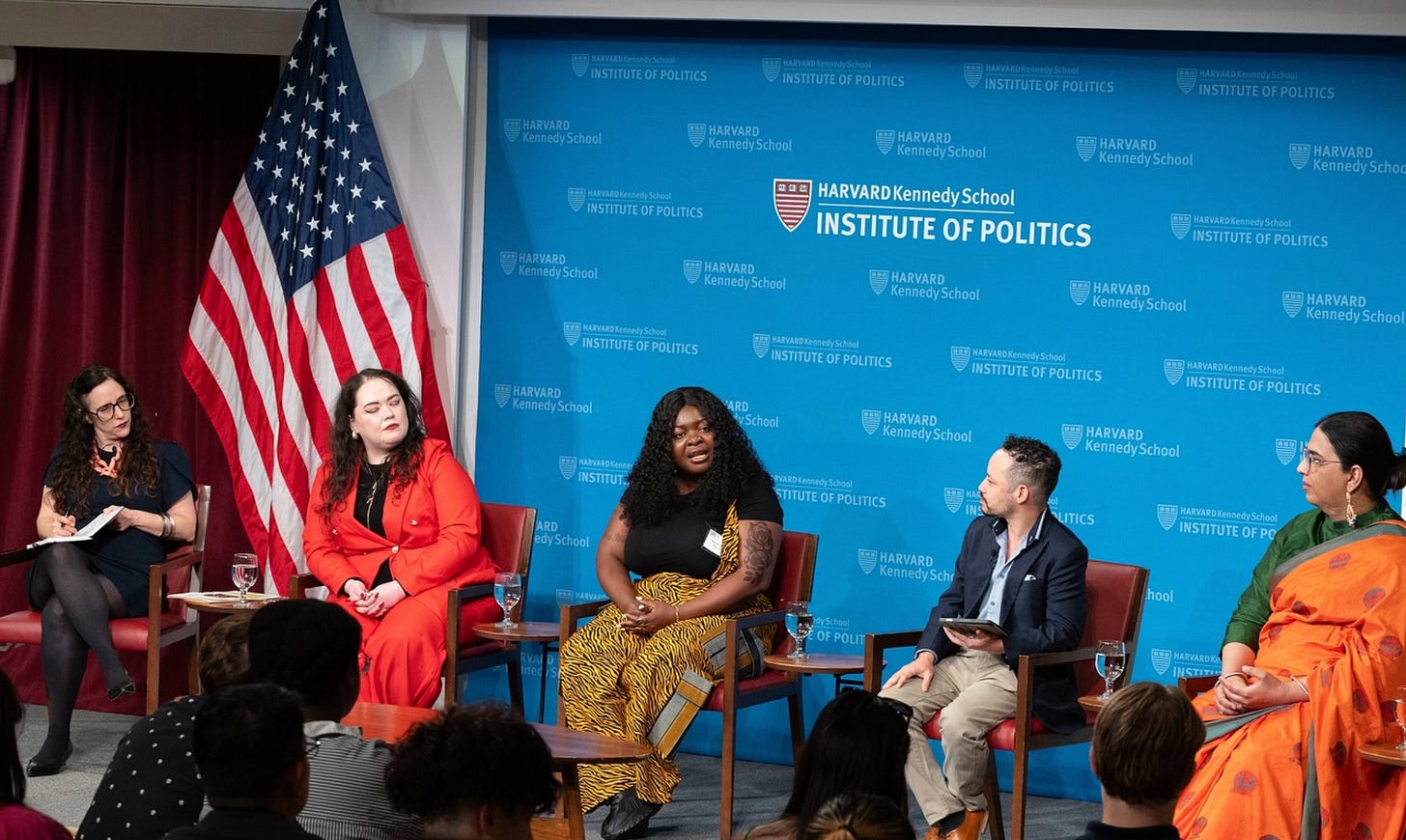Ideas Take a Back Seat at Harvard’s Global LGBTQ+ Forum
By Nathan A. Kahana
On October 7th, the Harvard Institute of Politics hosted a public forum featuring international LGBTQ+ activists who spoke about what they described as a global rise in hostility toward sexual and gender minorities. The discussion, held in the JFK Jr. Forum, brought together speakers from Russia, Nigeria, and other countries to share personal experiences and perspectives on the political, cultural, and psychological challenges facing their communities.
Panelist Dilya Gafurova, an activist from Russia, framed the increase in anti-LGBTQ+ sentiment as part of a worldwide trend influenced by shifts in the United States. “When the U.S. sneezes, the rest of the world catches a cold,” she said.
Her statement was revealing—important for us to hear, even if the conclusions we draw are not those she would prefer. For if it is true that the rest of the world catches America’s “cold,” then our domestic turn toward traditional values, far from isolating us culturally, appears to have inspired a corresponding reaction abroad. The moral direction of the United States, in other words, remains contagious.
Another speaker, Marline Oluchi of Nigeria, approached the issue from a postcolonial angle. She claimed that prejudice against queer people in African societies stemmed primarily from European colonialism, asserting that precolonial communities had been models of tolerance. The chorus of snaps that erupted upon this pronouncement reinforced one of the rules for belonging in this community: a commitment to sophistical theorizing at the expense of intellectual integrity.
As the discussion progressed, the atmosphere became less intellectual than therapeutic. The evening’s prevailing mood was one of emotional solidarity rather than critical engagement. Jessica Stern, the U.S. Special Envoy for the Human Rights of LGBTQI+ Persons, moderated the panel and underscored the importance of mental health for activists and marginalized individuals. “I don’t think we surface the need for emotional and psychological support enough,” she remarked.
Her sentiment was echoed throughout the forum. Again and again, speakers emphasized the importance of love, affirmation, and self-acceptance. There is, of course, merit in compassion toward others. Yet the insistence on “self-love” as the highest good gave pause. Often, the moments when we must remind ourselves to love who we are coincide with moments when we least believe that we should. The obsessive reinforcement of self-esteem can betray not confidence, but doubt—an unspoken uncertainty about one’s moral standing or purpose.
The forum was part of the IOP’s ongoing series on global human rights and civic engagement. While it aimed to spotlight the plight of LGBTQ+ communities worldwide, it also inadvertently illuminated the deep cultural divides that shape today’s moral discourse. The activists’ testimonies reflected the power of American cultural influence—both its progressive and traditional dimensions—and revealed a movement more concerned with emotional affirmation than with intellectual coherence.



With Christians being slaughtered by Muslims to the tune of 100,000+ in Nigeria, I find the selection of LGBTQI+ therapy as a political topic to be a gross mis-use of resources by the K-School IOP.
Let's put LGBTQI+ therapy into the Medical School's Psychology Department and then use the Kennedy School IOP as a platform to stop a genocide in Nigeria.
2 thoughts jump to my mind after reading this one.
1. On Nigeria, the most glaring threat to life and liberty is not LGBTQI+ rights, but rather religious rights and the right to life. More specifically, Islamists have been slaughtering Christians for many years without intervention by the West. Isn't this a higher moral priority than LGBTQI+ complaints about verbal slights and hurt feelings?
2. More generally, with regard to Africa, it seems to me that hostility towards LGBTQI+ persons during the most recent decades was driven more by fear of AIDS than by some sort of vaguely defined colonial mindset. There is a direct and scientifically verified link between AIDS and homosexual activity, but how, exactly, did colonialism cause LGBTQI+ antagonism? That seems much less clear to me.